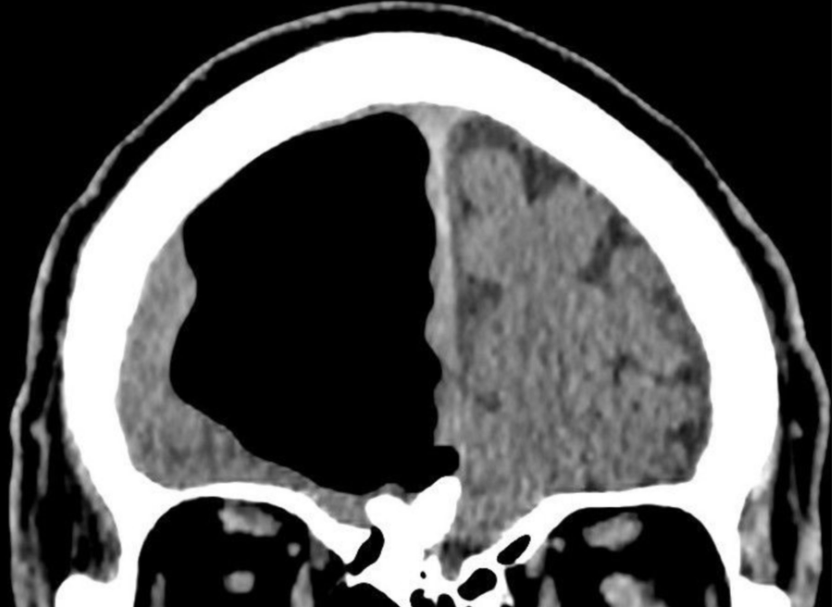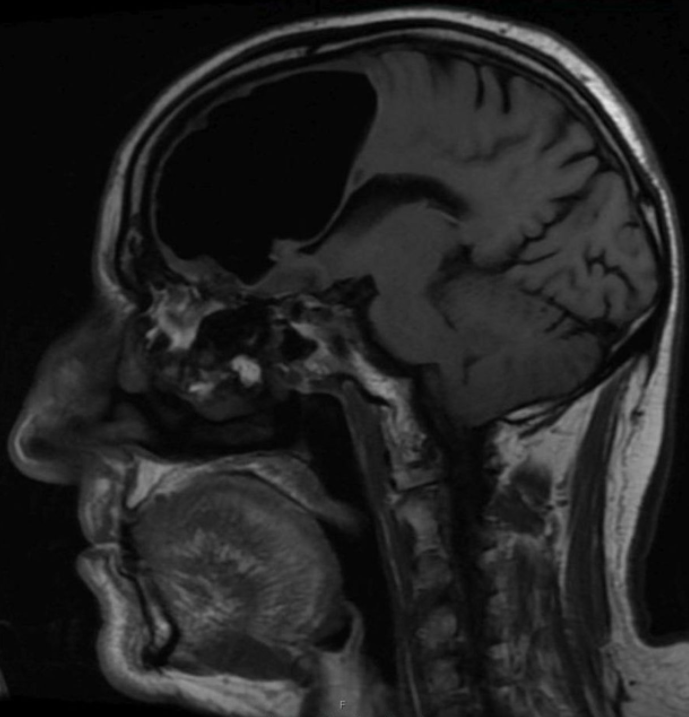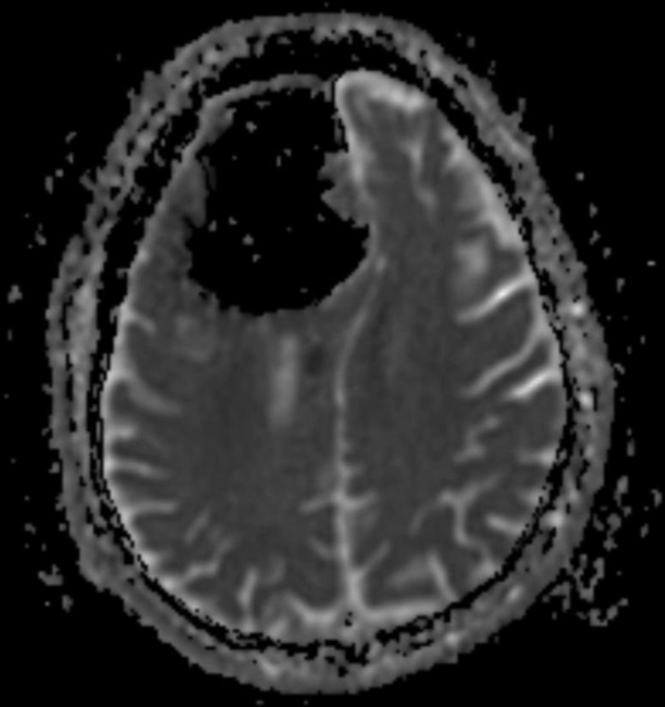Doctors discover air pocket in man’s skull, part of brain missing

Image: BMJ Case Reports
A team of doctors from Ireland encounter a curious case of an old man — fully functioning except for complaints of frequent falls — missing a part of his brain.
Doctors Finlay Brown and Djamil Vahidassr from Belfast, Ireland presented a peculiar case report in the BMJ Case Reports journal last Feb. 27. The report concerns the case of an unnamed 84-year-old man, whose brain scans show a part of his brain missing from his skull.
From the outside, the 84-year-old man seems pretty much normal: he was fit and well, independent with physical activities of daily living, a non-smoker and rarely drank alcohol. His blood tests, too, reflected no abnormality.
The man, however, was referred to the emergency department by his general practitioner after complaining of frequent falls and unsteadiness for the past months. “His medical history included glaucoma, meningitis (25 years ago) and nasal polypectomy many years ago,” the case report stated.
His condition seemed like a mystery to the doctors at first, since even his central nervous system examination revealed no abnormalities in his eye movements, speech, swallowing and visual fields. It wasn’t until CT and MRI scans were performed on the 84-year-old that a huge air-filled cavity, about 9 centimeters, was revealed within the right frontal lobe of his brain.
Where the man’s right frontal lobe should have been appeared to be merely just a blank void. Where did the rest of his brain go?

The 84-year-old in profile view. Image: BMJ Case Reports

CT of the 84-year-old’s brain showing the air cavity in the right frontal lobe. Image: BMJ Case Reports
The scan results were perplexing to Dr. Brown and his team, making them settle with differential diagnoses. In the end, the 84-year-old man was asked to undergo surgery to decompress the pressurized air cavity. The surgery would also remove the tumor in his brain, which was the cause behind the air moving in his brain cavity in the first place.
The man, however, decided not to proceed with the neurosurgery due to the risks. He was, instead, started on secondary stroke prevention and was advised to return in the event that his symptoms worsen. While his decision not to undergo surgery may pose greater risks for infection in the future, the man appears to be doing well, as noted on a follow-up 12 weeks after. JB
RELATED STORIES:
Creativity linked by study to left brain and right brain connections
Kenyan doctor performs brain surgery on wrong patient